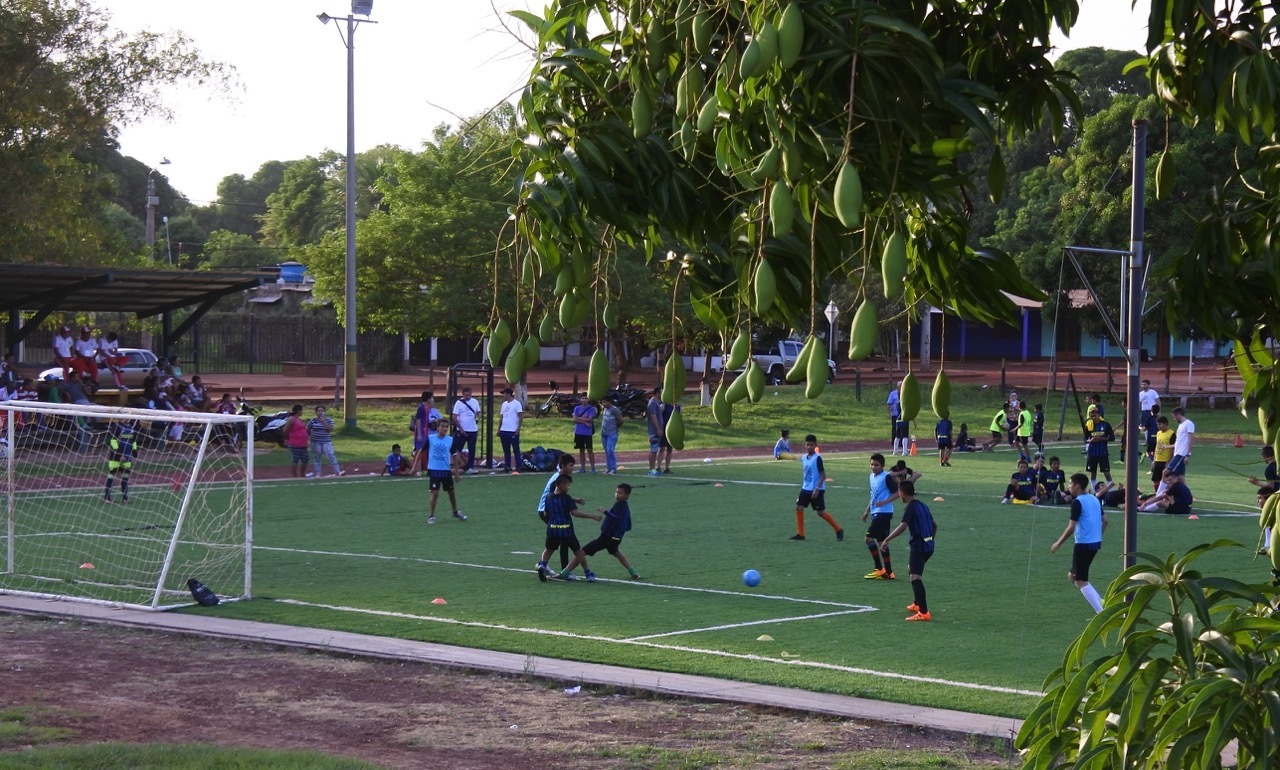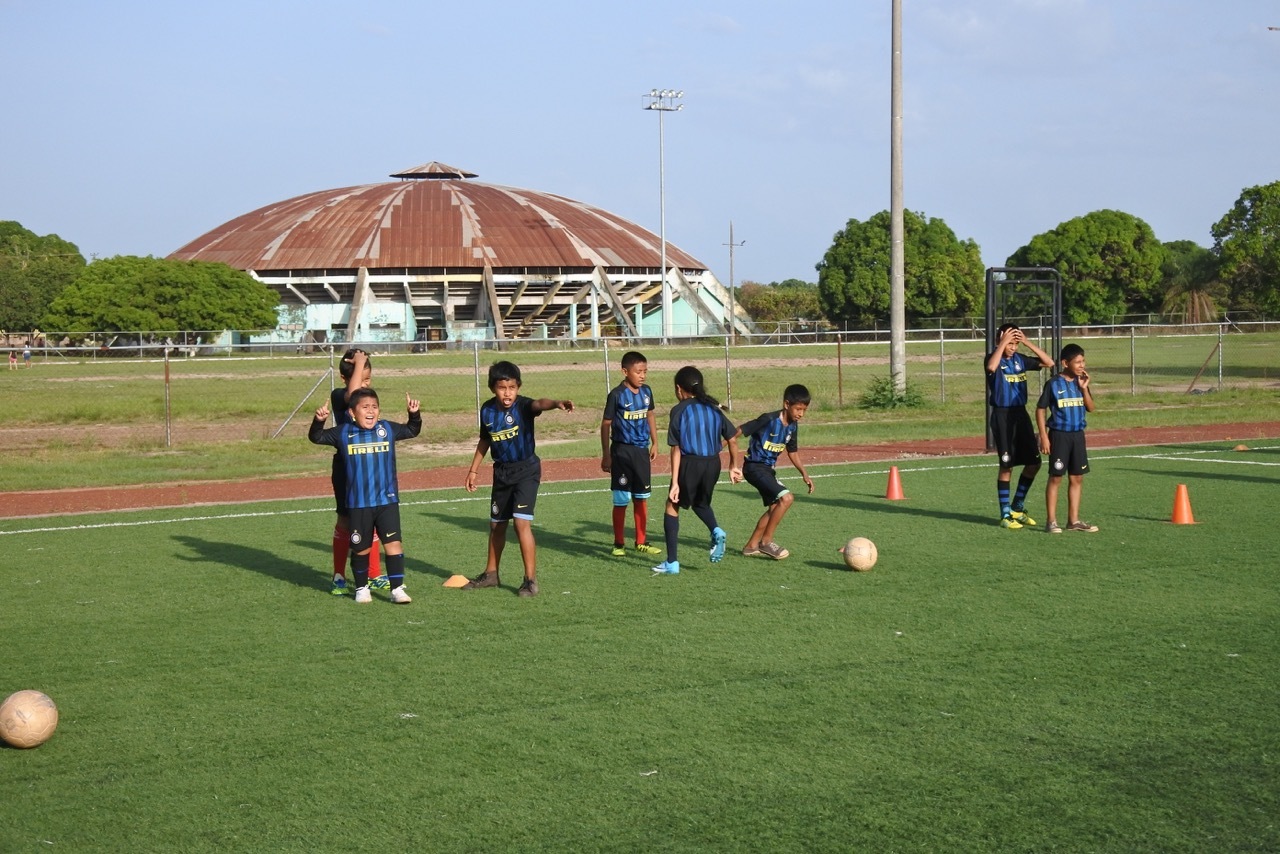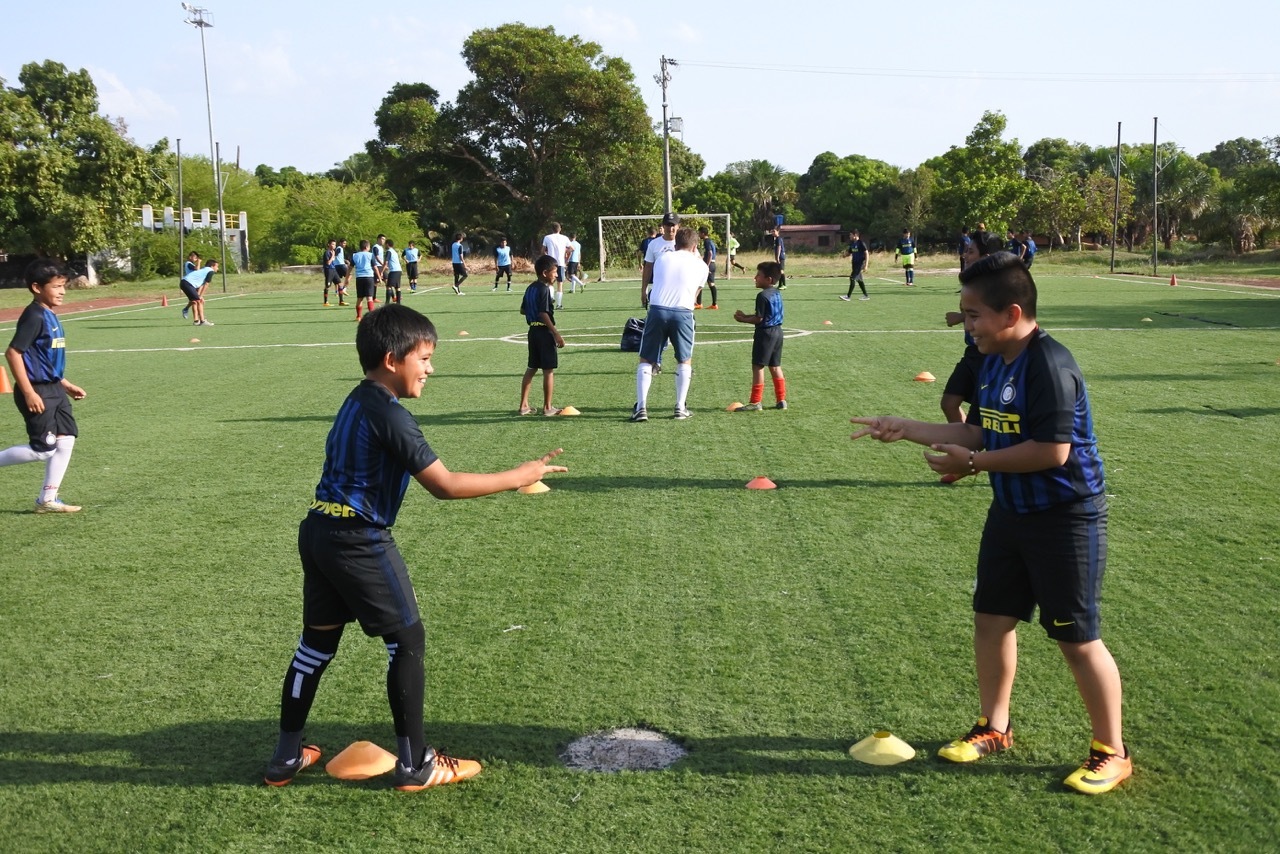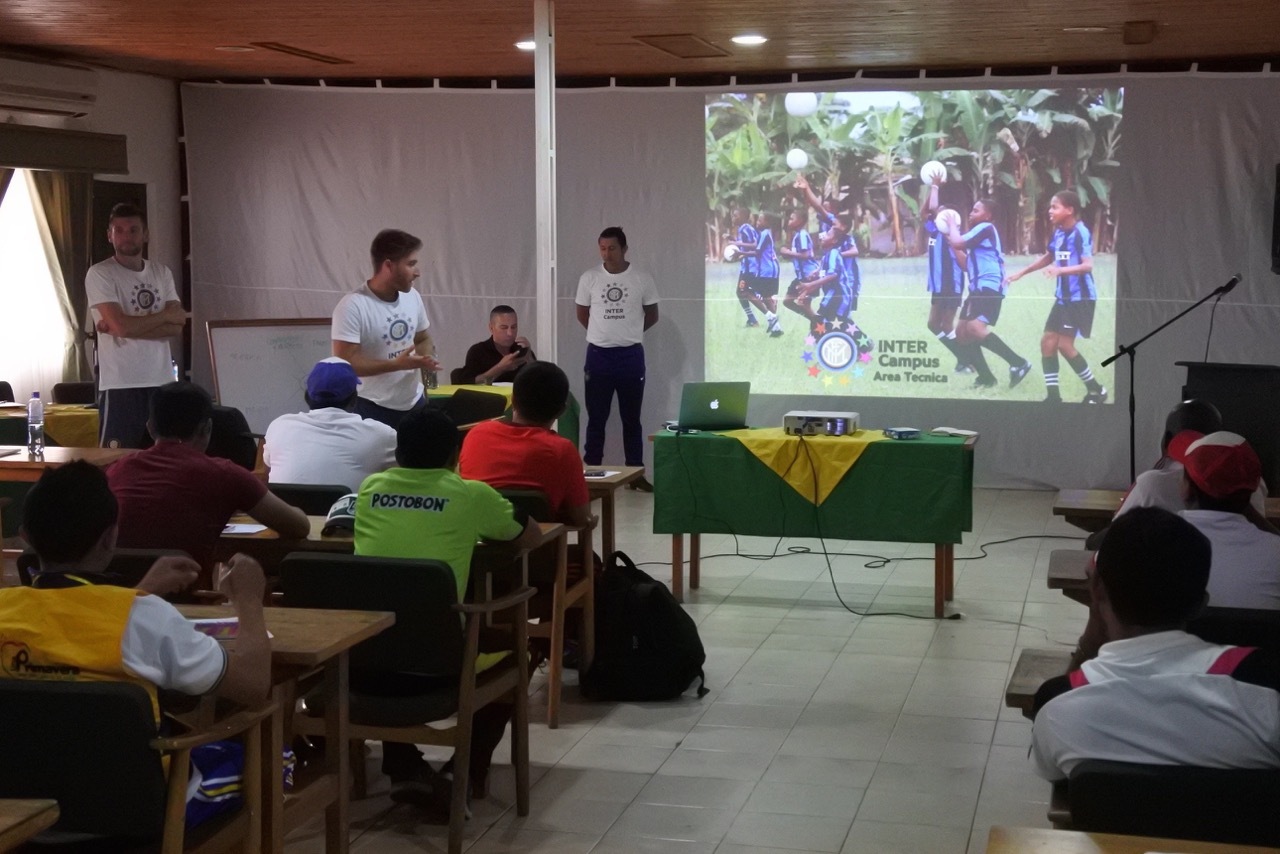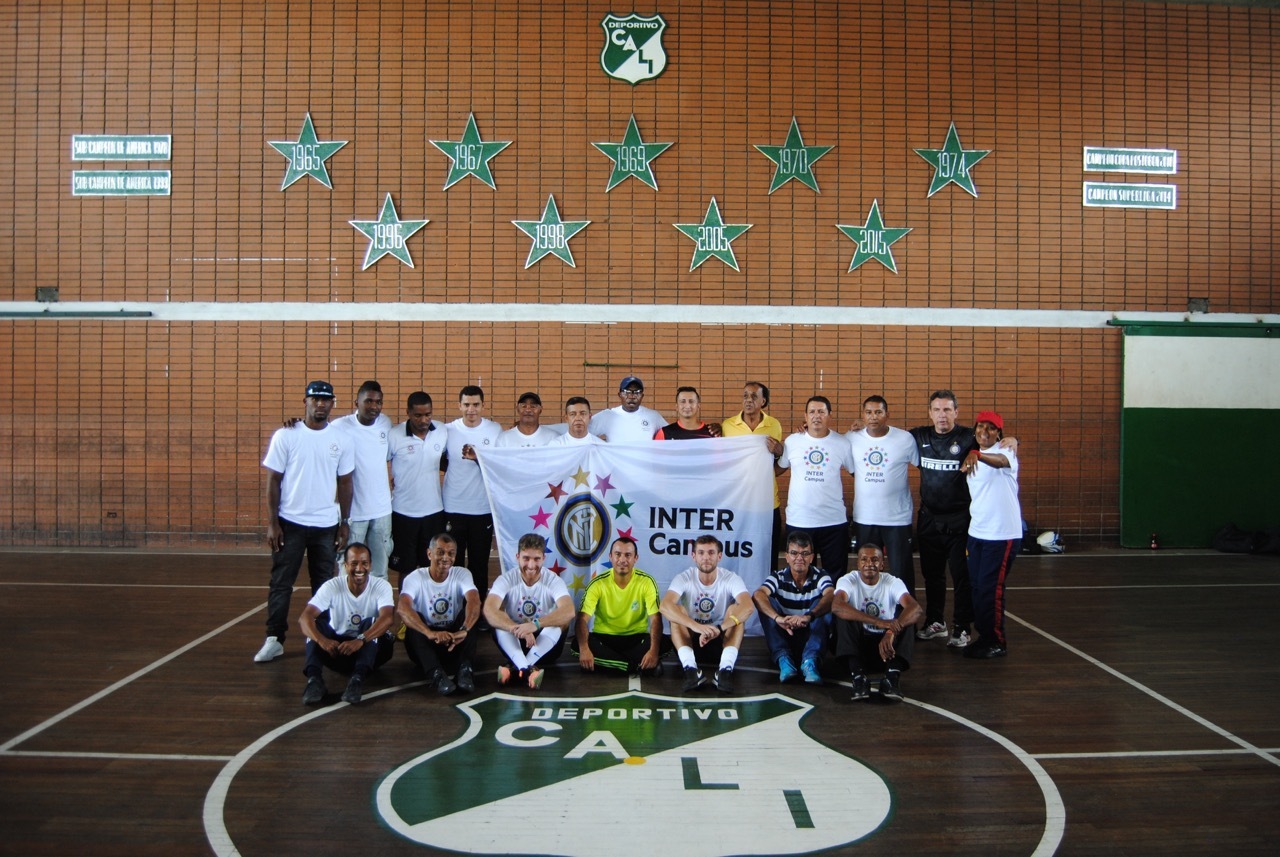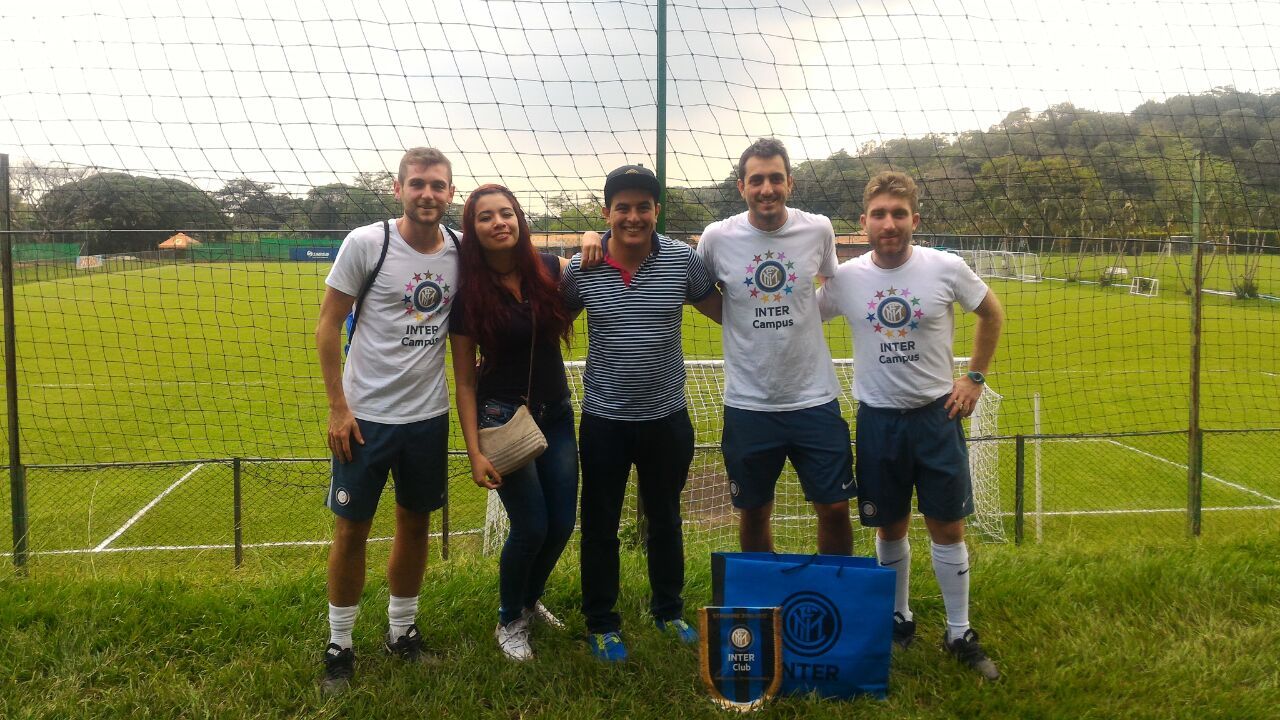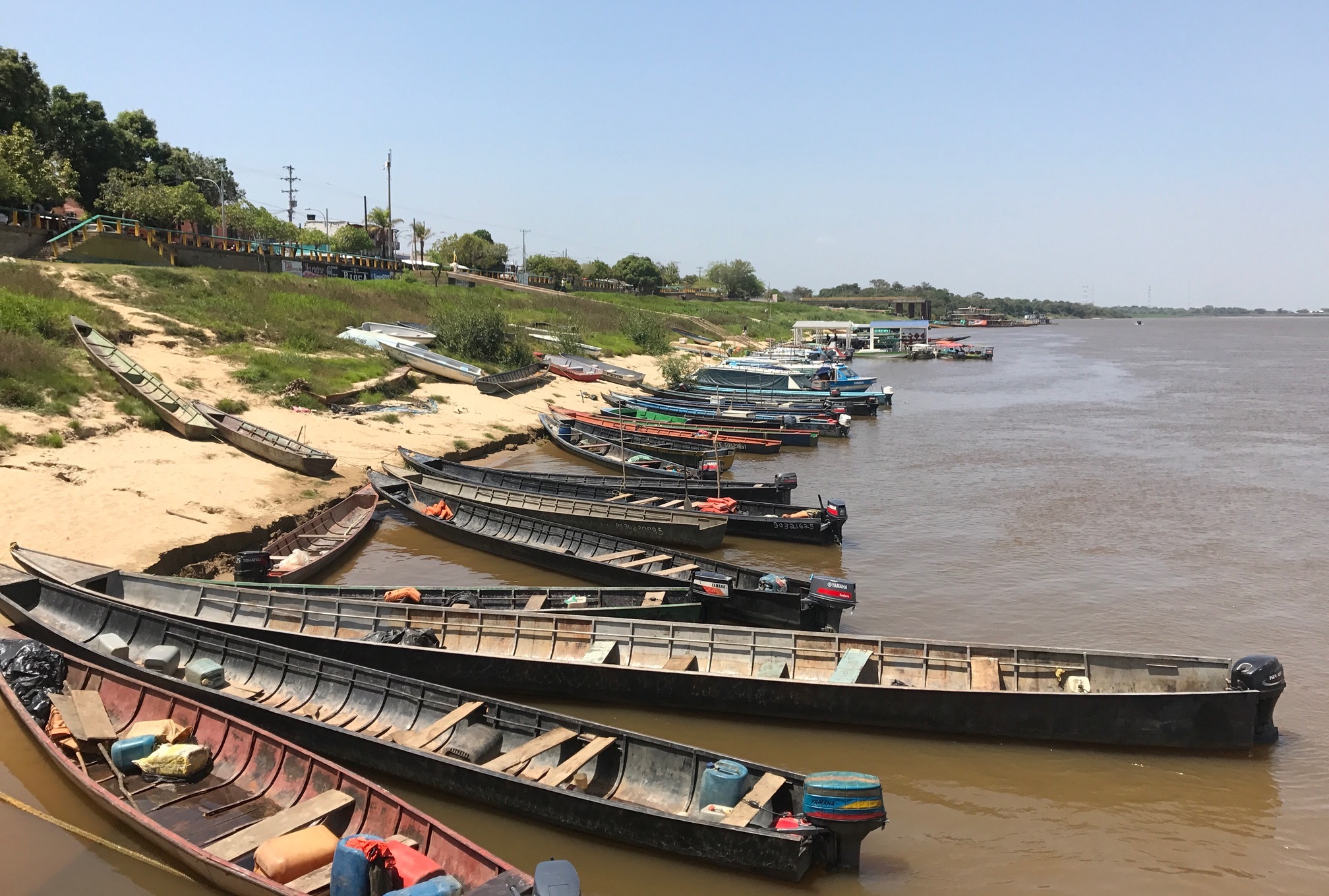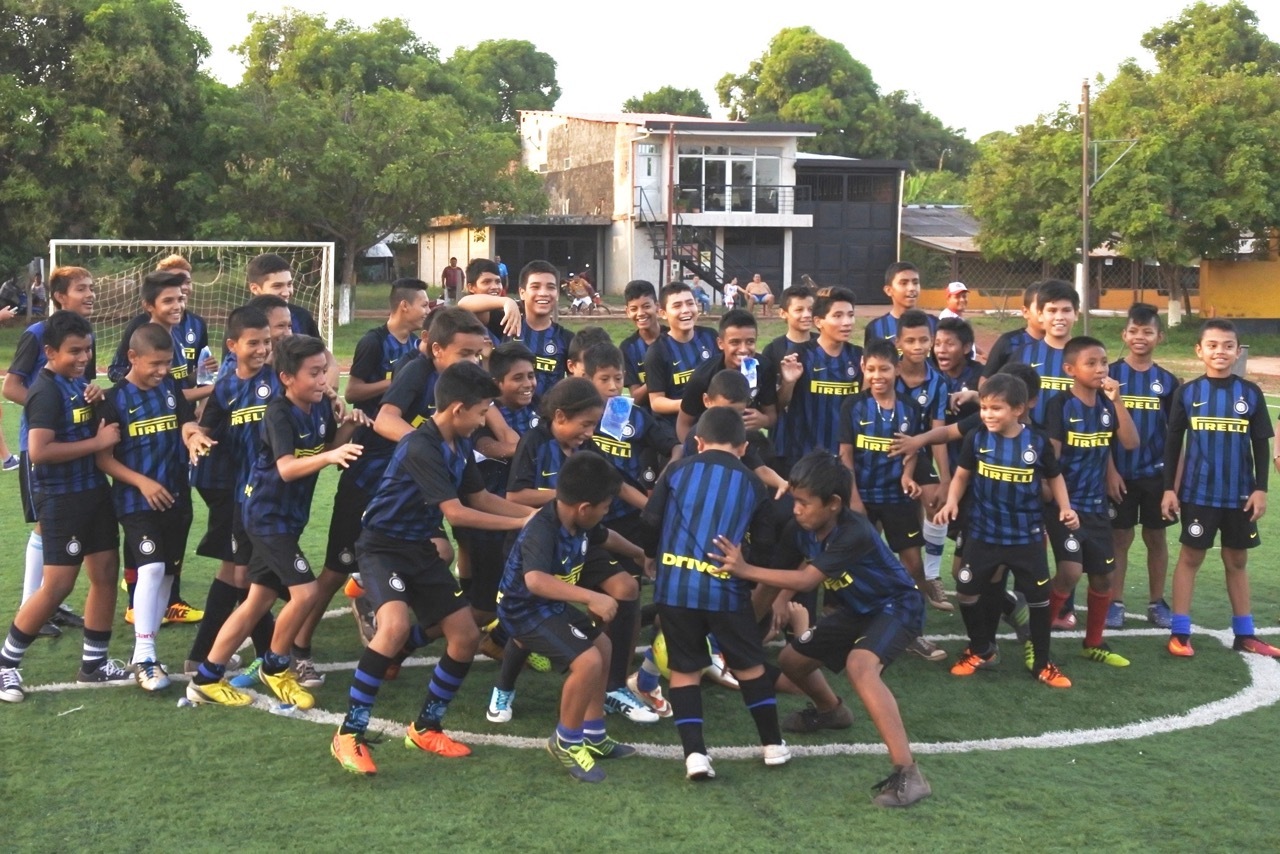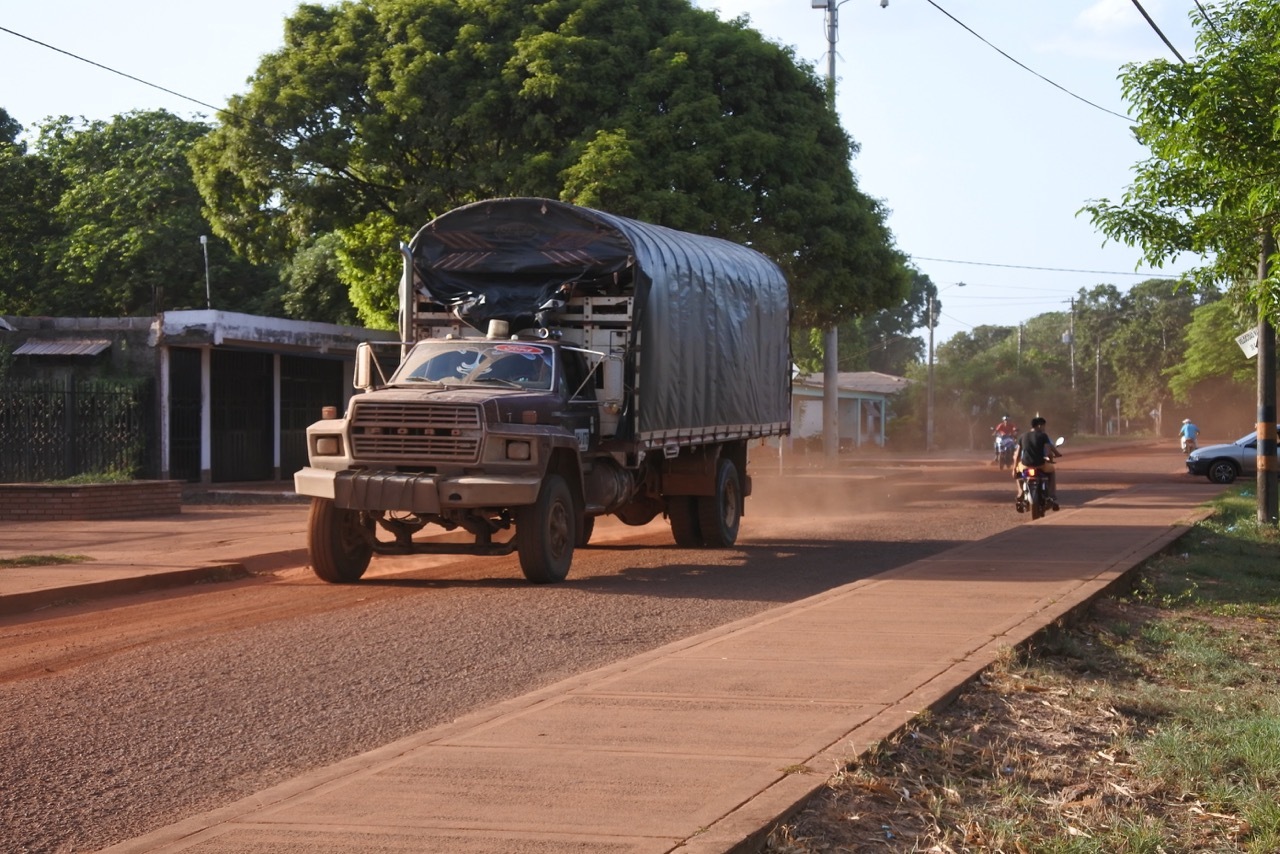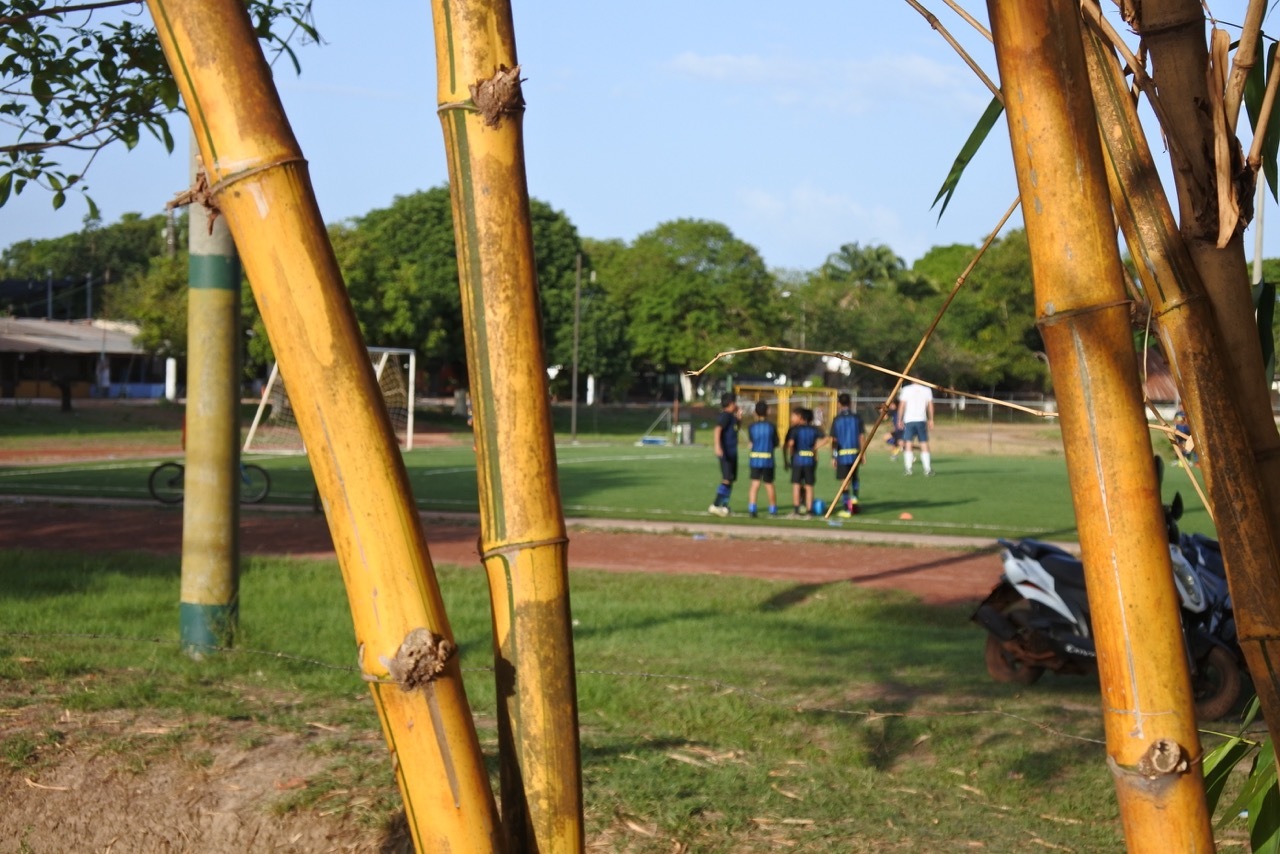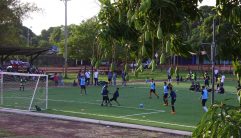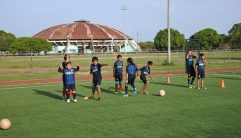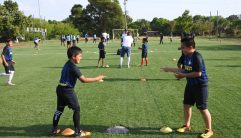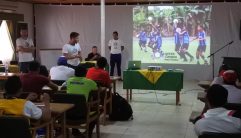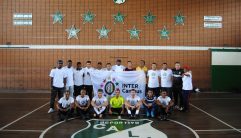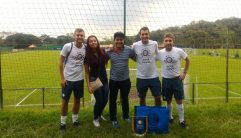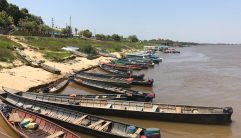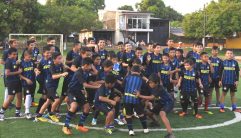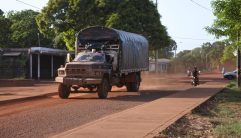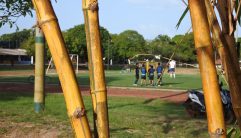The Colombian region of Vichada is intersected by three rivers and split into four municipalities, one of which is Puerto Carreño, which borders the neighbouring Venezuela and just happens to be the birthplace of our legendary local coordinator Ricardo Martinez.
Our visit to this humble, largely unknown Colombian region has been two years in the making. With just one flight operating from Bogota at four-day intervals, the area is desperate to raise awareness of its rich traditions. It was striking that Inter Campus was one of the first-ever foreign bodies to run a course in the region, despite it being the largest in Colombia. Four delegations made the trip to Puerto Carreño from all over the region to learn more about Inter Campus’ ideas, methods and approach to education and sports – all completely new to the visitors.
The coaches made the trip in all sorts of ways. Some travelled by car, eating up miles and miles of asphalt and dirt road, while others negotiated the tricky world of the Bogota connecting flight and plenty more came by boat, taking advantage of the Beta, Meta and Orinoco rivers.
Led by our excellent instructor Cesar, the local coaches and children threw themselves into the activities, ensuring our time spent working in the region was a great pleasure. The mornings saw theory courses run for the 30 coaches in attendance, before the afternoon gave way to practical training in the humid afternoon air (the summers can reach 38°C). Before leaving, there was just time – due to our plane back to Bogota being delayed by four hours – for a final tournament celebrating the values of sport. It was the last act in a hugely positive visit.
Accompanied by local llanera music, the inhabitants of this isolated land bade us a fond farewell as we began the first leg in our journey to Cali, the hub of Inter Campus’ activity in Colombia. It had been a special – and rare – experience for us all, from the local instructors to our own Cesar. We will be sure to return to what is known as a “land of men for men without land”.
10.04.2017




![[INTER CAMPUS VISITS PUERTO CARREÑO]](https://intercampus.inter.it/wp-content/uploads/2017/04/140937-1ban2.jpg)
